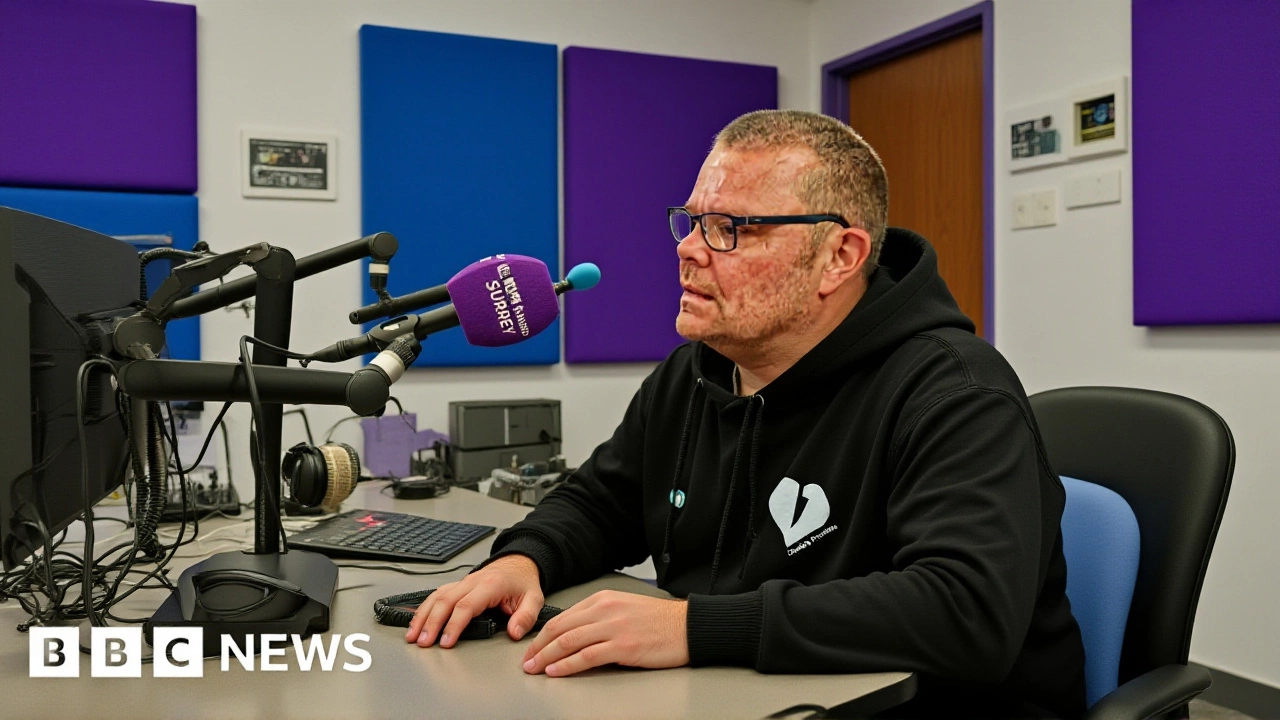When King Charles III, Prime Minister Keir Starmer, and actor Idris Elba walked into St James's Palace on Tuesday, 15 July 2025, it wasn’t a royal photo op. It was a raw, unfiltered reckoning with a crisis that has claimed over 300 young lives in England and Wales since 2020. The Youth Opportunity SummitSt James's Palace brought together victims, mentors, police, and policymakers — not to debate policy, but to hear from those who’ve lived it.
A Summit Born of Grief and Resolve
The gathering wasn’t just symbolic. It was the latest chapter in the work of the Coalition to Tackle Knife Crime, a multi-agency body formed at 10 Downing Street in early 2024. Since then, the coalition has held monthly coordination meetings, quietly stitching together law enforcement, charities, schools, and faith groups. But this event marked the first time a reigning monarch had publicly joined the fight — a signal, perhaps, that the scale of the problem demands more than politics.Prime Minister Starmer, who took office on 5 July 2024 after Labour’s general election win, opened the summit by acknowledging the weight of the moment. "We were elected on a pledge to tackle knife crime," he said. "Not because it’s politically convenient — but because it’s morally urgent."
He announced the government’s Plan for Change: eight Young Futures Hubs opening before December 2025 in cities where youth violence is most entrenched — London, Birmingham, Manchester, Liverpool, and others yet to be finalized. Each hub, funded through the Home Office and staffed by youth workers and mentors, will offer boxing, tutoring, job training, and mental health support — all free. "It’s not about locking kids up," Starmer added. "It’s about giving them a reason to walk away from the blade."
Voices from the Frontline
Among those who spoke was Kyle Shaw-Tullin, 25, a Royal Marine Commando and Team GB boxer. At 17, he was stabbed twice in Oldham, Greater Manchester, after a dispute over a hoodie. "I woke up in hospital thinking I’d die," he told the room. "But my coach didn’t let me quit. He showed up every day — even when I didn’t want to see him."His story echoed the work of Empire Fighting Chance, the London-based charity that uses boxing to pull teens from the margins. Though no representative spoke publicly, their presence was felt. Their model — structured training, discipline, and adult mentorship — is now being scaled nationally.
Mothers and fathers who lost children to knife violence sat silently in the front rows. One woman, whose 16-year-old son was killed in a random attack near a bus stop in Brixton last year, held a photo of him. "He wanted to be a chef," she whispered. "Now he’s just a statistic."

Legislative Momentum and the Home Office’s Role
Starmer pointed to the 2025 amendments to the Offensive Weapons Act 2019 as proof the government is acting. The changes now classify certain knife types — including disguised blades and gravity knives — as fully prohibited, with mandatory minimum sentences for possession by under-18s. The Home Secretary, though unnamed, called the summit "a powerful reminder of what can be achieved when government, communities, and campaigners come together with a shared purpose."Behind the scenes, the Home Office has been mapping knife crime hotspots using data from the Office for National Statistics (ONS). While exact figures weren’t cited, ONS data shows knife-related homicides in England and Wales rose 14% between 2021 and 2023 — with 78% of victims under 25. The hubs will target teens aged 13–19 flagged by schools and police as "at-risk" — often those with prior arrests, truancy, or family trauma.
Why This Matters Beyond the Headlines
This isn’t the first time a UK government has promised to fix knife crime. In 2008, under Gordon Brown, the government launched the Youth Endowment Fund — which later saw funding slashed. In 2016, Theresa May’s "Violent Crime Reduction Strategy" yielded minimal results. What’s different this time? Three things: sustained political will, cross-party buy-in, and the inclusion of lived experience.Idris Elba, who’s spent years advocating for youth programs in his native East London, summed it up: "You don’t solve this with more police. You solve it with more mentors. More jobs. More hope."
The King’s presence, though quiet, carried symbolic weight. In a time of deep societal division, the monarchy’s endorsement of this effort signals that knife crime isn’t a Labour or Conservative issue — it’s a British one.

What’s Next?
The first Young Futures Hub is expected to open in Peckham, South London, by October 2025. Locations in Birmingham and Manchester are already being scouted. Each hub will partner with local boxing gyms, colleges, and employers to create pathways out of crime. The government has allocated £2.3 million for the first year, with plans to scale to £15 million annually by 2027.But the real test lies in sustainability. Will these hubs survive the next election? Will funding hold? Will the public stay engaged when headlines move on? The answer may depend on whether the first cohort of teens — the ones who walk into a hub at 15, and leave at 18 with a Level 2 qualification and a job offer — are seen as proof that change is possible.
Frequently Asked Questions
How will the Young Futures Hubs identify at-risk teens?
Local authorities, schools, and police will use a risk-assessment tool developed by the Home Office, tracking factors like truancy, prior police contact, family instability, and exposure to violence. Teens flagged as high-risk will be contacted directly and invited to join a hub — no referral or criminal record required. The goal is early intervention before violence escalates.
What makes Empire Fighting Chance’s approach different?
Unlike traditional youth programs, Empire Fighting Chance combines structured boxing training with trauma-informed mentoring. Coaches are often former offenders themselves, lending credibility. Their retention rate for at-risk teens is 82% — far higher than national averages. The program doesn’t just teach punches; it teaches accountability, routine, and self-worth — skills that translate into school and work.
Has the Offensive Weapons Act 2019 amendment made a measurable difference?
Early data from Metropolitan Police shows a 19% drop in possession arrests for prohibited knives in London since the 2025 amendments, particularly among under-18s. While arrests aren’t the same as prevention, they indicate a deterrent effect. The real metric will be whether fewer teens are carrying knives at all — something police are now surveying through anonymous school questionnaires.
Why is King Charles III involved in this issue?
The King has long supported youth and mental health initiatives through his charities, including The Prince’s Trust. His attendance signals that this isn’t a partisan issue but a national one. For a monarch who rarely comments on policy, showing up at a crime summit is a rare and deliberate act — one that lends moral authority to the government’s efforts and encourages public trust.
What happens if a hub doesn’t meet its targets?
Each hub will be evaluated quarterly using three metrics: reduction in local knife crime, youth engagement rates, and educational/job outcomes. If a hub fails to meet benchmarks for two consecutive quarters, it receives additional support — not closure. The government’s approach is adaptive, not punitive, recognizing that rebuilding lives takes time.
How can communities support these hubs?
Local businesses can offer apprenticeships, churches can host events, and retired professionals can volunteer as mentors. The hubs aren’t meant to operate in isolation — they’re anchors for community renewal. Even simple acts, like donating sports gear or offering a free meal after training, make a difference. The most powerful resource isn’t money — it’s consistent, caring adults showing up.
